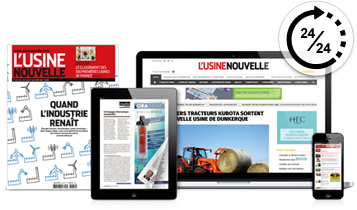“Our main goal is to stop the spread of the virus.” It is in these terms that Herbert Diess, the boss of Volkswagen, justified the shutdown of most of the group’s factories in Europe. In recent days, the management of the German manufacturer has been criticized by members of the works council who accused it… Continue reading The German car also stops
Tag: VW
Four-wheel-drive ‘key’ to hot Volkswagen ID 4 GTX EV
Volkswagen technology chief Matthias Rabe says the company has chosen to base its first electric performance model on the ID 4, a 4.6m-long SUV, so it can take advantage of four-wheel-drive. As first revealed by Autocar, Volkswagen is set to introduce the GTX badge for a range of hot ID models. But while the Golf-size ID… Continue reading Four-wheel-drive ‘key’ to hot Volkswagen ID 4 GTX EV
Tesla is shutting down its factory due to coronavirus, but it has enough cash to stay in business for a while (TSLA)
Tesla said that it would suspend production at its Fremont, California, factory beginning March 23. The company said that “continued operations” had caused challenges for employees and suppliers. The San Francisco Bay Area is under a shelter-in-place order among a worsening coronavirus outbreak in the US. In shutting down its plant, Tesla joins the Detroit… Continue reading Tesla is shutting down its factory due to coronavirus, but it has enough cash to stay in business for a while (TSLA)
@VW Group: Technical milestone in road safety: experts praise Volkswagen’s Car2X technology
The new Golf can help drivers to prevent accidents, thanks to its innovative Car2X technology, allowing it to wirelessly connect with other vehicles and the traffic infrastructure. The Euro NCAP consortium gave special recognition to the traffic hazard alert function with the Advanced Award for ground-breaking safety fea-tures. The German automotive association ADAC tested the… Continue reading @VW Group: Technical milestone in road safety: experts praise Volkswagen’s Car2X technology
@VW Group: Brands of the TRATON GROUP take action as a result of the corona pandemic
In response to the corona pandemic, the European brands of the TRATON GROUP will temporary close several plants in Europe and request temporary unemployment assistance (so called “Kurzarbeit”) to support its workers in Germany during the shutdown. “It is becoming harder and harder to supply our plants due to the spread of the coronavirus in… Continue reading @VW Group: Brands of the TRATON GROUP take action as a result of the corona pandemic
@VW Group: ŠKODA AUTO has closed Czech plants due to coronavirus pandemic for initial period of minimal two weeks
ŠKODA AUTO CEO, Bernhard Maier, explained the halt in production as follows, “With 37,000 employees in the Czech Republic alone, our responsibility extends far beyond the factory gates. Everything must be done to slow the spread of the virus in order to protect and help those who will be particularly affected – most notably the elderly… Continue reading @VW Group: ŠKODA AUTO has closed Czech plants due to coronavirus pandemic for initial period of minimal two weeks
@VW Group: Financial year 2019: AUDI AG achieves its financial targets and sets a course for long-term competitiveness
Audi steered a steady course through a challenging 2019 financial year. The car manufacturer systematically reduced its WLTP inventories and achieved slightly higher deliveries for the Audi brand than in the previous year in a highly competitive environment. Revenue of €55.7 billion reflects the high demand for SUVs and top-end models. Operating profit and operating… Continue reading @VW Group: Financial year 2019: AUDI AG achieves its financial targets and sets a course for long-term competitiveness
@VW Group: Growth in turnover and operating margin for Ducati in 2019
Ducati closes 2019 positively, consolidating the growth that has characterized the last years of the Italian motorcycle manufacturer. 53,183 (2018: 53,004) bikes were delivered to customers all over the world, a result that allowed sales to remain above 50,000 units for the fifth consecutive year, confirming the positive signs of the market which, in the… Continue reading @VW Group: Growth in turnover and operating margin for Ducati in 2019
@VW Group: Automobili Lamborghini achieves record figures in Fiscal Year 2019 Coronavirus poses significant challenges for 2020
In Fiscal Year 2019 (1 Jan – 31 Dec), Automobili Lamborghini S.p.A. achieved its best-ever results across the board, entering new dimensions in its year-long growth. The Italian super sports car producer outperformed all previous key business benchmarks: sales, turnover and profitability achieved levels unprecedented in the 56-year history of the brand. The celebration of… Continue reading @VW Group: Automobili Lamborghini achieves record figures in Fiscal Year 2019 Coronavirus poses significant challenges for 2020
Toyota extends North America production shutdown through April 3
FILE PHOTO: Toyota logo is seen in Tokyo Motor Show in Tokyo, Japan October 24, 2019. REUTERS/Soe Zeya Tun (Reuters) – Toyota Motor Corp (7203.T) said on Thursday it will extend a planned two-day shutdown of all North American plants through April 3 as the spread of coronavirus continues. The largest Japanese automaker said Wednesday… Continue reading Toyota extends North America production shutdown through April 3
